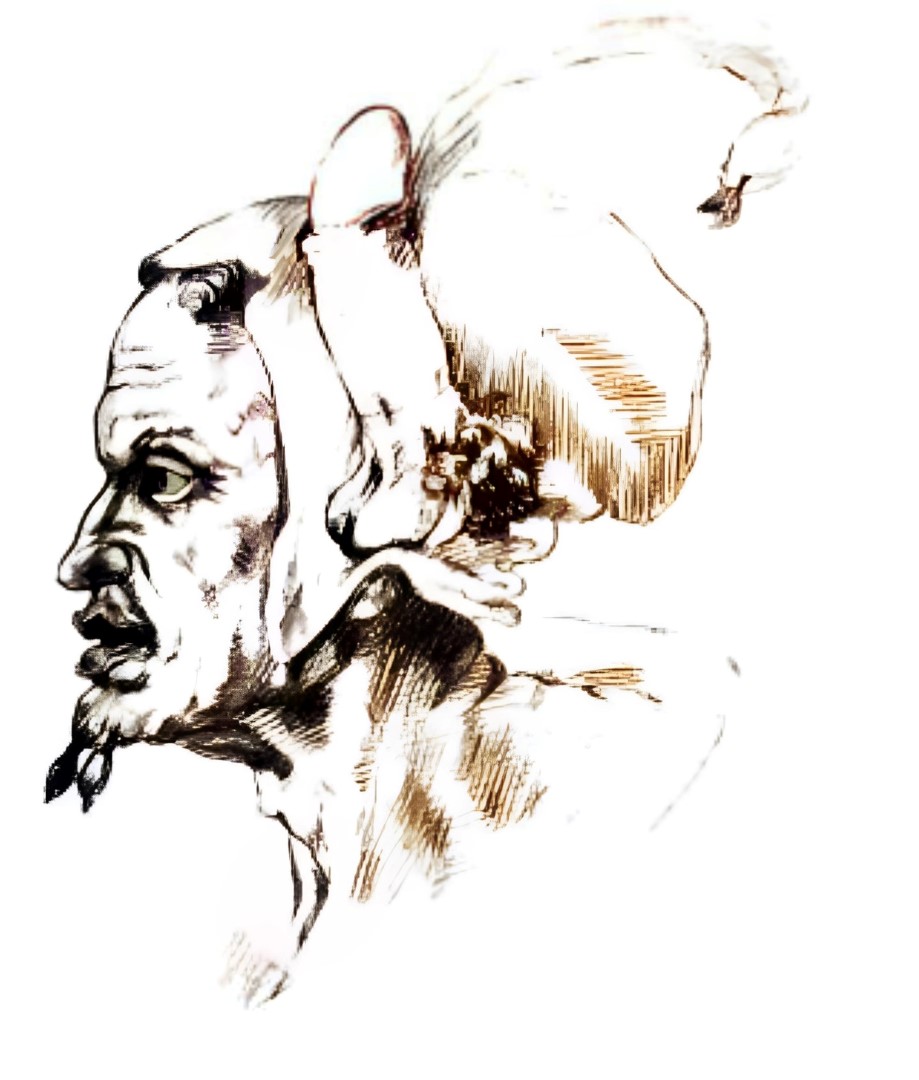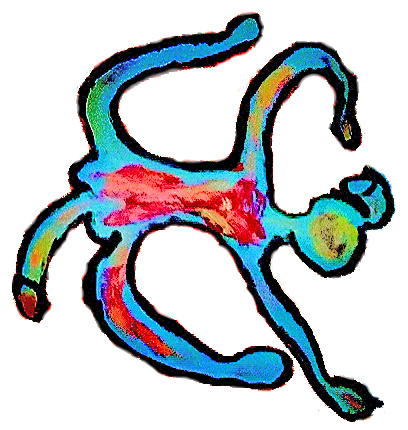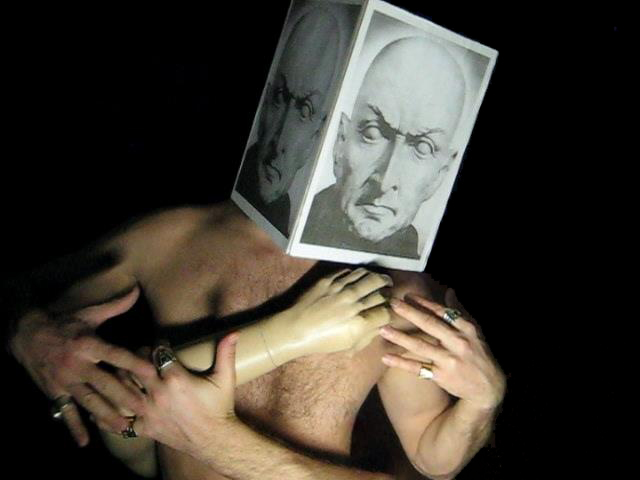Ordo Templi Orientis Phenomenon (original) (raw)
Certainly, spermo–gnosis and sex–magic tend to invite rhetoric that veers towards sensationalism and may sound alarmist, not to mention titillating. I have diligently strived to steer clear of these potential pitfalls. Nevertheless, it is essential to declare from the outset that the subject requires candor, and I have not hesitated to provide it.
Spermatophagy
Spermo–Gnostics and the Ordo Templi Orientis — Introduction to the Ascetic and Libertine Gnostics, or The Erotization of Misery.
- Versione italiana: Origine dei gruppi O.T.O. e la Magia sessuale.
- Deutsche Version: Sperma–Gnosis und der O.T.O.
- Traduction française: Les Spermo–Gnostiques.
- Traduccion castellano: Ordo Templi Orientis: Espermo–Gnósticos.
- Tradução portuguesa: Os Espermo–Gnósticos e a Ordo Templi Orientis.
- Ceská verze: Asketictí a Libertinstí Gnostikové.
- Traduse in romana: Sperma–Gnoza.
Clément de Saint–Marcq: The Eucharist, 1906.
The Correct Gnosticism: The ascetic roots of the O.T.O.
- Traduction française: Le Gnosticisme Correct.
- Traduccion castellano: Gnosticismo Correcto.
- Traduse in romana: Gnosticism Corect — Fenomenul Ordo Templi Orientis Informatii suplimentare.
The Secrets of the O.T.O.–groups.
Touto esti to sperma mou. Ho pater estin ho huios dia to pneuma hagion. AUMGN. AUMGN. AUMGN.
Aleister Crowley's 'Gnostic Mass' includes a Cake of Light which incorporates the Logos and is prepared using certain ingredients including bodily secretions. This Cake is not intended for transubstantiation but to contain a deity called the Childe, specifically an aspect of Horus, the Egyptian God of the Sky.
The cake is transmuted by digestion, not through transubstantiation, making it a sex–magical medium for the participant's will. Consumption or bodily contact with the host is necessary for transformation, unifying the host with its consumer, unlike the Roman Catholic host, which changes its invisible essence without changing appearance or chemical qualities.

In the 1970s, the occult community embraced a heightened level of sexuality involving a variety of partners. This not only created but also reinforced the stereotype about occultists that persists to this day, shaping how some individuals define occultism. During that era, many embarked on a social experiment of extended proportions, likening it to a form of religion and using sex as its raw material.
A significant emphasis was placed on individuals' autonomy, encouraging the freedom to engage in whatever they desired. The expression of sexuality underwent a transformative shift from being carried out furtively to becoming a celebratory manifestation, embodying the newly liberated attitudes towards occultism.
The moment sex became available to everyone at a mouse–click, the power of discourse (to borrow Foucault's term) of those who constructed a truth–producing apparatus around sexuality, also crumbled.
Aura of the O.T.O. Phenomenon.
- Tradução portuguesa: A Aura do Fenômeno O.T.O.
Halo of Flies.
Organized occultists seek to establish their parareligion as a fixed aspect of society. The purpose of this article is to illustrate how such organizations impose intellectual conformity on individuals who genuinely seek knowledge. This contribution, originally published in Richard Metzger's "Book Of Lies" in 2003, explores several key topics, including Thelema and the loss of identity, manufactured gnosis, and the manifestation of Borg–consciousness in secret societies like the O.T.O.
Of a similar nature: Phantoms of the Paradise.
Anonymous 2021: Burning Down The House. Keywords: 'Caliphate', Argenteum Astrum, James Wasserman, Donald Trump.
What Will I Give For An Encore?
Part One of Smoke Gets In Your Aiwass. All about Angels and Abramelin.
Part Two: More on The chajoth, the ‘living creations’ or ‘flying things’.
The focus is on the rôle of the Abramelin Book in inspiring occultists to engage with the Holy Guardian Angel. Notable themes include the Mysterium iniquietatis, Roman–Catholic Angels, God's Test, the sins of the Angels, the Heavenly Doppelgänger, and Aleister Crowley's experiences with the Abramelin Book.
Die vollständige Version (mit einem dritten Teil), ist jedoch nur auf deutsch erhältlich: Abramelin & Co.
Ecstatic Creation of Culture.
The main ideas of this lecture, dated 1996, are the examination of Aleister Crowley's magical religion, the phenomenon of euphoric trance–images, the use of Cabbala as a verbal bridge between different realities, and the discussion of occultists associated with occult orders and free occultists.
- Deutsche Version: Ekstatische Erzeugung von Kultur [overdubbed version] — Die kommerzielle Plünderung der okkulten Leitfossilien. Version 2011.
- Tradução portuguesa: Criação Extática de Cultura.
These days, debates on the internet often resemble a collective downhill race. Participants vie with each other to rush towards the abyss on their ideologically primed steep slopes. The crash seems inevitable, and the end near — however, the specific end in question varies depending on the faction. Is it the domain of the self–righteous and know–it–alls, those voices that express opinions on absolutely everything and prefer to preach their truths in the form of slogans?
And how was the internet perceived and used in its early days?
Use of the Internet — A questionnaire for occultists of April/March 1997.
Playgame of an O.T.O.–Fatamorgana 2011.
The article explores the controversial membership of the O.T.O., through academic research and statistics. It discusses the renovation of the statistics, noting that little is known about the entire membership. It also touches on the rôle of AIDS within the organization, as well as the presence of AIDS–denialists as members of the Cabinet of the 'Caliphate'. Additionally, the article examines the suicide rate among members and explores the process for gaining entry into the Sovereign Sanctuary of the Gnosis, the O.T.O.'s innermost circle. It also discusses censorship and the media's coverage of the O.T.O., as well as the issue of name–dropping within the organization.
- Traduction française: Jeu de rôle d'une O.T.O.–Fatamorgana.
- Traduzione italiana: La versione play–game di un O.T.O.–Fatamorgana.
- Tradução portuguesa: Versão Jogo de uma O.T.O.–Fatamorgana.

Fetish, Self–Induction, Stigma and Rôleplay. 2011.
The O.T.O. has a controversial history, and it has been linked to several allegations of misconduct. Individuals who participate in O.T.O. rituals or practices may, therefore, face potential risks stemming from the organization's history or reputation. It is worth noting, however, that this article does not concentrate specifically on negative effects. Rather, it provides an analysis of the use of fetishism, self-induction, stigma, and rôleplay in the context of O.T.O. rituals and practices.
- Traduction française: Fétiche, auto–induction, stigmatisation et jeu de rôle.
- Traduzione italiana: Il feticcio, l’auto–induzione, lo stigma, il gioco di ruolo.
- Tradução portuguesa: Fetiche, Auto-Indução, Estigma e Rôleplay.
- Tlumaczenie polskie: Fetysz. Rytualy. Resocjalizacja: Tozsamosc przez stygmat. Autoindukowana schizofrenia. Odgrywanie ról.
- По русски: Фетиш, самоиндукция, стигма и ролевая игра.
Gaps in the Script of Esotericism: Hypocrisy and Hypercrisis — Oscar Wilde: Ambition is the last resort of failure. 2012.
In the realm of academia, scholars, preoccupied with their interpretations of archived knowledge, form insular communities. Occultists disguise themselves as scholars, and vice versa. Laypersons, adept at employing 'langue de bois' rhetoric, gravitate towards their preferred online platforms. A culture of self–affirmation prevails, accompanied by a chorus of indignant condemnation directed at others.
The McDonaldisation of Occulture.
The present article, dating back to 1997, investigates the utilization of calculability and quantifiability as evaluative criteria by secret societies such as the O.T.O. Specifically, I examine the degree to which the American O.T.O. has adopted a supermarket–style approach characterized by McDonaldization in its organizational structure and practices. Furthermore, this concept is contextualized within the burgeoning realm of the internet, elucidating the potential implications of these developments on the nature and function of secret societies in contemporary society.
- Deutsche Version: Die McDonaldisation der Okkultur — Das Internet im Spannungsfeld potentieller Schöpfung.
- По русски: Макдональдизация оккультуры.

The Creative Power. Golems and Homunculi are two symbolic constructs that represent the creative power of the soul. The homunculi, which are artificially created beings, represent the potential for creation that exists within each individual. The golem, on the other hand, is a creature from Jewish folklore brought to life through mystical means and represents the manifestation of creative power in the physical world.
Keywords: Paracelsus, Ordo Templi Orientis, Baphomet, Egregor, Fraternitas Saturni, Theodor Reuss, Hanns Heinz Ewers.
- Traduction française: Le pouvoir créateur.
- Traduse in romana: Putera Creatoare.
- По русски: Творческая Сила.

Aleister Crowley created a kind of a parallel world, with new values based on the injunctions of religion etc, called Thelema, in which he played the central rôle of a Prophet.
Regarding his antidemocratic, racist and misanthropic writings, followers point out: "The reason [...] aspects of Thelema are omitted [in public discussion] indicates the actual problem with presenting Thelema as a religion and attempting to get Thelema sanctioned by the government or approved by the public: Thelema is ultimately in contrast to and transgressive of normative society. Thelema rejects the morals and values of normative society and acts to transgress and violate these norms. From the inclusion of intoxicants in ritual, to the positive view of sexuality, which frequently is seen as promoting promiscuity, to the pro–authoritarian and Nietzschian aspects of Thelema, normative society has much to reject in Thelema and conversely, Thelema encourages its adherents to reject most aspects of normative society." ['Caliphate' O.T.O.'s "Journal of Thelemic Studies", 1;2, 2008, page 40]
Nicht alle Zweige des O.T.O. haben Crowleys Thelema übernommen. "Der Grund, dass [...] Aspekte von Thelema ausgelassen sind, ist das aktuelle Problem, wie Thelema in der Öffentlichkeit als Religion darzustellen ist, um so vom Staat anerkannt zu werden. Thelema ist ganz eindeutig konträr und an den Grenzen der normativen Gesellschaft. Thelema weist die normativen Werte und Moral ab und zielt auf die Ueberschreitung und Verletzung eben dieser Normen. Die Miteinbeziehung von Drogen in die Rituale, die positive Betonung der Sexualität, die als Werbung für Promiskuität angesehen werden kann und der autoritäre und pro-Nietzscheanische Aspekt von Thelema zwingen die normative Gesellschaft zur Ablehnung und gleichzeitig ermutigt Thelema seine Anhänger, die meisten Aspekte der normativen Gesellschaft abzulehnen." ["Journal of Thelemic Studies", 1;2, 2008, Seite 40, übersetzt]
Concernant les écrits antidémocratiques, racistes et misanthropes de Crowley, ses disciples soulignent : « la raison [que quelques] aspects de Thelema sont omis [dans la discussion publique] indique le problème réel avec la présentation de Thelema comme une religion et essayant d'obtenir pour Thelema une sanction du gouvernement ou approuvé par le public : Thelema est finalement en revanche transgressive de la société normative. Thelema rejette la morale et les valeurs de la société normative et agit pour transgresser et violer ces normes. De l'inclusion des substances intoxicantes dans les rituels, à la perception positive de la sexualité, souvent considérée comme favorisant la promiscuité, le proautoritaire et l’aspect Nietzschéenne de Thelema, la société normative a beaucoup rejeter en Thelema et inversement, Thelema encourage ses adhérents à rejeter la plupart des aspects de la société normative. » [Journal of Thelemic Studies, 1;2, 2008, page 40, traduit].
In merito agli scritti antidemocratici, razzisti e misantropici di Aleister Crowley, i suoi seguaci precisano: «La ragione per cui [...] certi aspetti della filosofia thelemica sono omessi [nei pubblici contesti] indica l’effettiva difficoltà di presentare Thelema come una religione e al contempo ottenere una legittimazione dallo stato o la pubblica approvazione: invero Thelema trasgredisce e si contrappone alle norme sociali. Thelema rifiuta la morale e i valori della società normata e agisce per trasgredire e violare queste norme. Per l’uso di ‘sostanze’ nei rituali, per la magnificazione della sessualità, spesso fraintesa come spinta alla promiscuità, per gli aspetti pro-autoritari e nietzscheani, la società normata ha molto da respingere in Thelema e, allo stesso modo, Thelema incoraggia i suoi accoliti a respingere la maggior parte degli aspetti della società normata.» “Journal of Thelemic Studies”, 1; 2, 2008, p. 40.
Em relação aos escritos antidemocráticos, racistas e misantrópicos: "A razão […] de certos aspectos de Thelema serem omitidos [de discussões públicas] indica o real problema em apresentá-la como uma religião e tentar fazer com que seja aceita por governos ou aprovada publicamente: Thelema está, no final das contas, em contraste com a sociedade preceptiva além de transgredi-la. Thelema rejeita a moral e os valores dela e age para transgredir e violar tais normas. Desde a inclusão de intoxicantes em rituais, passando pelo ponto de vista positivo em relação a sexualidade — que com freqüência é visto como incentivo à promiscuidade — aos aspectos pró-autoritários e Nietzscheneanos de Thelema, a sociedade preceptiva tem muito para rejeitar em Thelema e, reciprocamente, Thelema encoraja os seus simpatizantes a rejeitar muitos aspectos dessa sociedade." "Journal of Thelemic Studies", 1;2, 2008, pag. 40.

Das Milieu des Templer Reichs — Die Sklaven Sollen Dienen.
The argument presented in this discussion suggests that Aleister Crowley may be considered a political opportunist, who sought to build relationships with anyone, anywhere, in order to advance his personal interests, including the operation of his parareligion, Thelema. As he faced repeated failures in his political and utopian pursuits, Crowley increasingly emphasized his status as the founder of a religion, attracting followers from all walks of life. Therefore, it is beneficial to recognize the diverse range of people interested in this topic.
This article will focus on notable individuals and organizations in this milieu, such as the Ordo Novi Templi, Fraternitas Saturni, and key figures such as Lanz von Liebenfels, Mathilde Ludendorff, Karl Germer, Christian Bouchet, Paolo Fogagnolo, and James Wasserman. The discussion will explore the political leanings of these groups and their members, as well as their attitudes towards anti–Semitism and religious intolerance. Additionally, the analysis will address the question of whether a consistent political direction can be identified within the O.T.O. Finally, the concepts of Ariosophy and paranoia will also be explored and illustrated with examples.
- English version: The Templar's Reich — The Slaves Shall Serve.
- Traduction française : Le Milieu du Reich des Templiers. Les Esclaves Serviront.
- Tradução portuguesa : O Ambiente do Reich dos Templários — Os Escravos Servirão.
- Traduse in romana: Reich–ul Templier — Sclavii trebuie sa serveasca.
Also: Proto–Fascist Elements in the O.T.O.
Something that is not related to the O.T.O.: Rudolf von Sebottendorff: Der Talisman des Rosenkreuzers. With a preface by Albrecht Goetz von Olenhusen.
